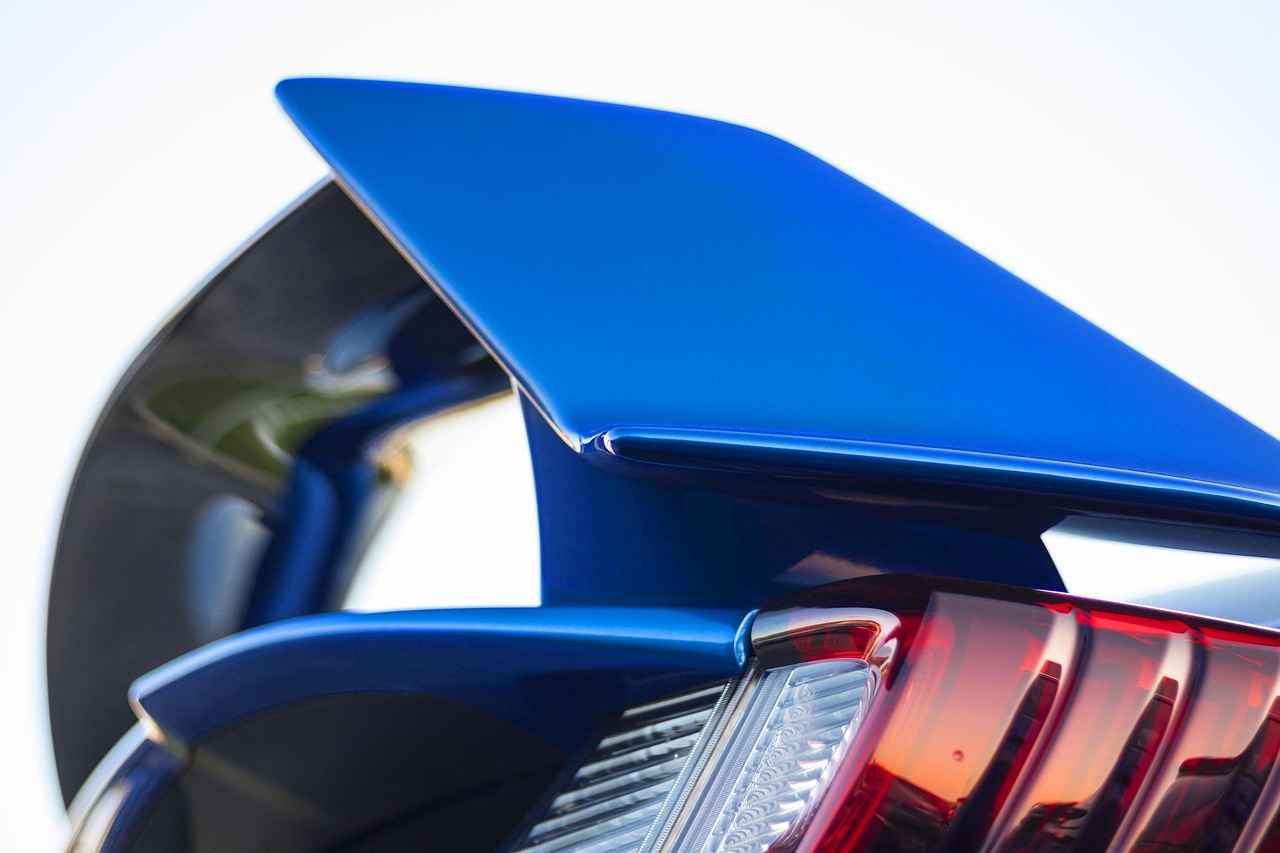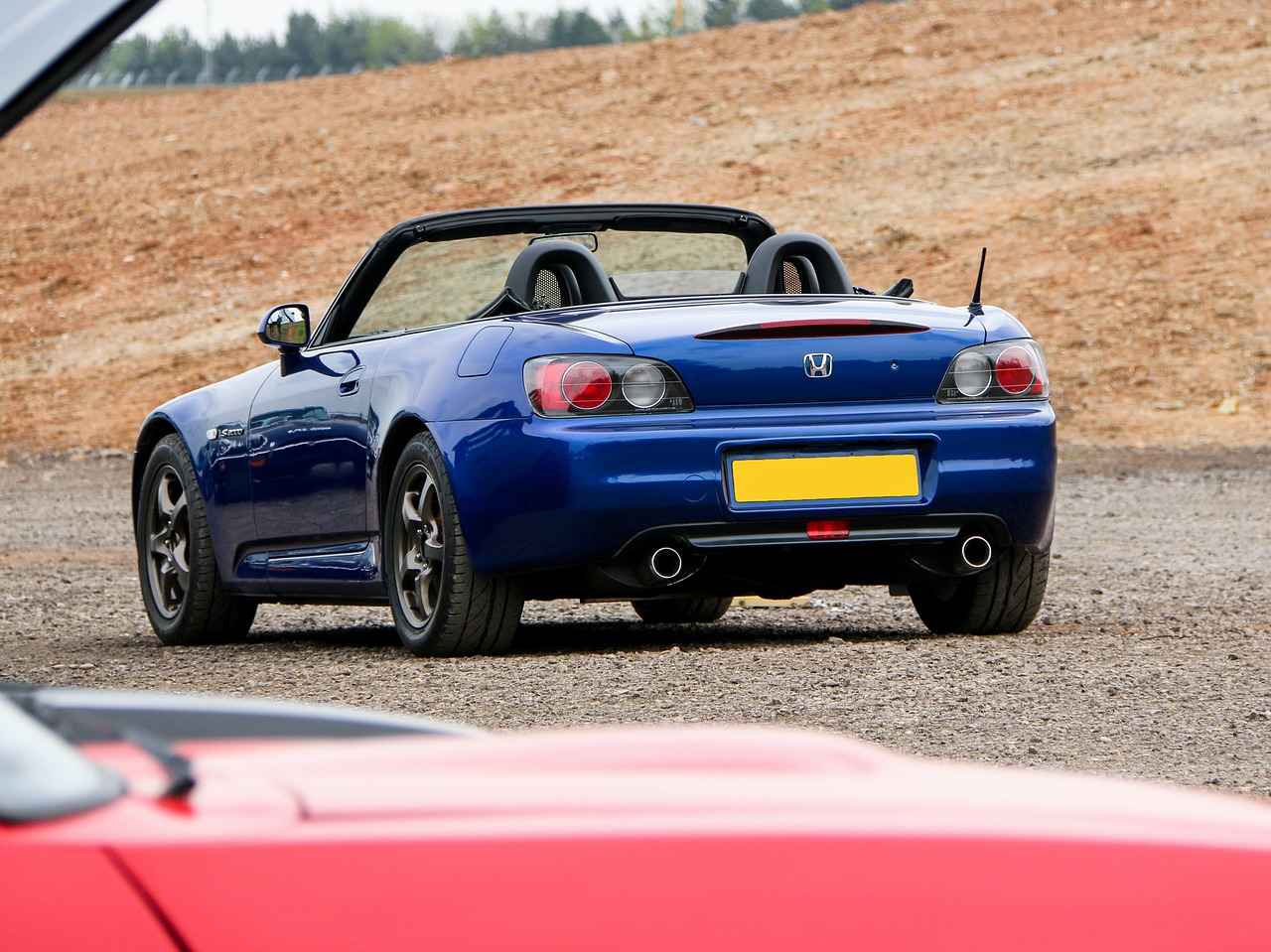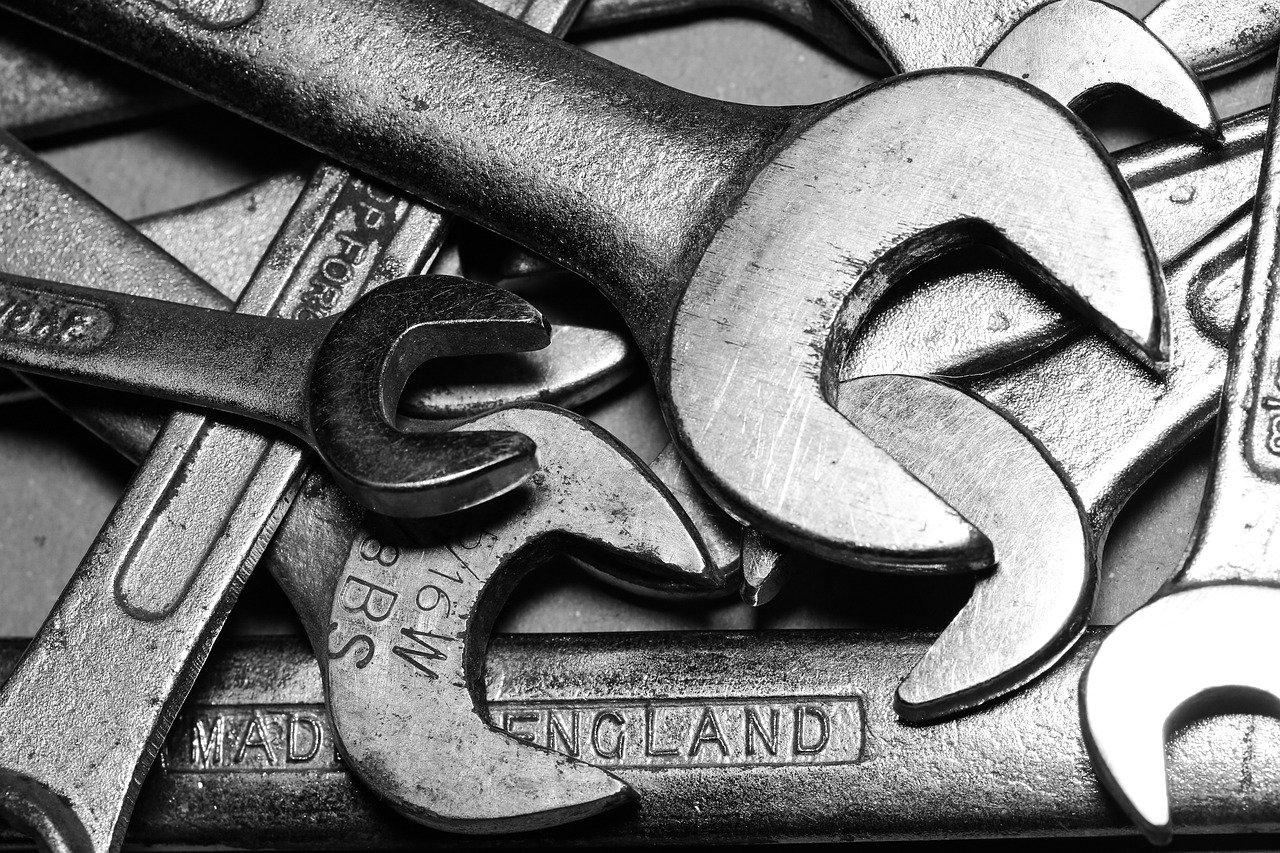The Honda Accord is renowned for its durability and reliability, making it a popular choice among car buyers. This article delves into the factors that contribute to the longevity of the Honda Accord, offering valuable insights, maintenance tips, and expert opinions to assist potential buyers in making informed decisions.
The average lifespan of a Honda Accord typically ranges from 200,000 to 300,000 miles. However, this figure can vary significantly based on several critical factors, including:
- Maintenance practices
- Driving habits
- Model year
Several key elements can significantly affect how long a Honda Accord will last:
- Regular Maintenance: Adhering to a strict maintenance schedule is essential for extending the life of any vehicle.
- Environmental Conditions: Factors such as climate and road conditions can impact wear and tear.
- Driving Styles: Gentle driving habits can lead to less stress on the vehicle.
Regular maintenance is crucial for maximizing the lifespan of the Honda Accord. Key maintenance practices include:
- Oil Changes: Frequent oil changes keep the engine lubricated, reducing the risk of premature wear and tear.
- Tire Care: Proper tire maintenance, including rotation and alignment, ensures safety and enhances vehicle longevity.
Your driving habits play a pivotal role in determining how long your Honda Accord lasts. For instance:
- Gentle Acceleration and Braking: Smooth driving can significantly enhance the vehicle’s lifespan.
- Avoiding Short Trips: Short trips can lead to incomplete engine warm-up, which may harm engine health.
Some Honda Accord models are celebrated for their exceptional durability. When considering a purchase, research specific model years known for reliability. For example:
- Older Models: Often feature simpler technology, resulting in fewer mechanical issues.
- Newer Models: Equipped with advanced safety features that enhance overall performance.
Consulting user reviews and reliability ratings from trusted automotive sources can provide insights into which Honda Accord models stand the test of time. This feedback can be invaluable for potential buyers.
Maintaining a Honda Accord not only extends its lifespan but also preserves its resale value. Key aspects include:
- Routine Maintenance Records: Keeping detailed records can enhance resale value, as buyers often seek well-maintained vehicles.
- Understanding Common Repairs: Awareness of common repairs and their costs can help owners budget effectively for future maintenance.
Automotive experts frequently share insights on the longevity of the Honda Accord, often based on extensive testing and consumer feedback:
- Industry Ratings and Awards: The Honda Accord has received numerous accolades for reliability, reflecting its performance in the automotive market.
- Expert Maintenance Tips: Professionals recommend specific maintenance practices tailored to the Honda Accord, aiding owners in maximizing their vehicle’s lifespan.
In summary, understanding the factors that contribute to the longevity of the Honda Accord can significantly benefit potential buyers. With proper maintenance, considerate driving habits, and informed choices regarding model selection, owners can enjoy a reliable and long-lasting vehicle.

What Is the Average Lifespan of a Honda Accord?
The Honda Accord is a well-regarded vehicle known for its reliability and longevity. Many owners wonder, On average, a Honda Accord can last between 200,000 to 300,000 miles. However, this range can vary significantly based on several factors such as maintenance practices, driving habits, and the specific model year.
Understanding the factors that influence the lifespan of a Honda Accord is crucial for potential buyers and current owners alike. Here are some key elements to consider:
- Maintenance Practices: Regular maintenance is essential to keep any vehicle running smoothly. Adhering to the manufacturer’s recommended maintenance schedule can help extend the life of your Accord.
- Driving Habits: How you drive your Accord can significantly impact its longevity. Gentle acceleration and braking can reduce wear and tear, while aggressive driving can lead to faster deterioration.
- Environmental Conditions: Vehicles driven in harsh climates or rough terrains may experience more wear compared to those in milder conditions.
Regular maintenance is not just a suggestion; it’s a necessity for extending the lifespan of your Honda Accord. Here are some critical maintenance tips:
- Oil Changes: Keeping up with regular oil changes is vital. It ensures that the engine remains lubricated, reducing the risk of premature wear.
- Tire Care: Proper tire maintenance, including regular rotations and alignments, enhances safety and improves handling, which can contribute to the overall longevity of your vehicle.
- Brake Inspections: Regularly inspecting and maintaining your brakes is crucial for both safety and longevity, as worn brakes can lead to more significant issues down the line.
Your driving style plays a pivotal role in determining how long your Honda Accord will last. Here are some tips to consider:
- Avoiding Rapid Acceleration: Gradual acceleration can help reduce stress on the engine and transmission.
- Consistent Speed: Maintaining a steady speed on highways can improve fuel efficiency and reduce engine strain.
- Gentle Braking: Smooth braking can prevent excessive wear on brake pads and rotors.
Not all Honda Accord models are created equal when it comes to longevity. Some models have gained a reputation for exceptional durability:
- Older Models: Generally, older models are simpler in technology, which can mean fewer mechanical issues.
- Newer Models: While newer models come with advanced features that enhance safety and comfort, they may also have more complex systems that could require more maintenance.
Maintaining your Honda Accord not only extends its lifespan but also preserves its resale value. Here’s how:
- Routine Maintenance Records: Keeping detailed records of maintenance can enhance resale value, as potential buyers prefer well-maintained vehicles.
- Understanding Common Repairs: Being aware of potential repairs and their costs can help you budget effectively, ensuring your Honda Accord remains in good condition.
Automotive experts frequently highlight the Honda Accord’s longevity based on extensive testing and consumer feedback:
- Industry Ratings: The Honda Accord has received numerous awards for reliability, underscoring its reputation in the automotive market.
- Expert Maintenance Tips: Experts recommend specific maintenance practices tailored to the Honda Accord to help owners maximize their vehicle’s lifespan effectively.
In summary, with proper care and attention, a Honda Accord can provide many years of reliable service. By understanding the factors that influence its lifespan and adhering to regular maintenance, owners can enjoy their vehicles for hundreds of thousands of miles.

Factors Influencing the Longevity of a Honda Accord
The longevity of a Honda Accord is a topic of great interest among car enthusiasts and potential buyers alike. Understanding the factors that influence how long this reliable vehicle can last is essential for making informed decisions. In this section, we will explore the various elements that can significantly impact the lifespan of a Honda Accord.
Several key factors can significantly impact how long a Honda Accord will last, including maintenance practices, environmental conditions, and driving styles.
- Maintenance Practices: Regular maintenance is paramount. Adhering to the manufacturer’s recommended service schedule can greatly enhance the vehicle’s lifespan. This includes routine oil changes, brake inspections, and tire rotations. Each of these tasks plays a critical role in keeping the vehicle in optimal condition.
- Environmental Conditions: The environment in which a Honda Accord operates can also affect its longevity. Vehicles exposed to harsh weather conditions, such as extreme heat or cold, may experience accelerated wear and tear. Additionally, driving in areas with poor road conditions can lead to increased stress on the vehicle’s components.
- Driving Styles: How a driver operates the vehicle can have a profound effect on its lifespan. Gentle acceleration and braking can reduce stress on the engine and transmission, leading to a longer-lasting vehicle. Conversely, aggressive driving habits can lead to quicker degradation of essential components.
One of the most significant factors in determining how long a Honda Accord will last is regular maintenance. This practice not only keeps the vehicle running smoothly but also helps in identifying potential issues before they escalate into major problems.
- Oil Changes: Regular oil changes are crucial for maintaining engine health. Fresh oil keeps engine components lubricated, reducing friction and preventing overheating.
- Tire Care: Proper tire maintenance, including regular rotations and alignments, ensures optimal handling and safety. Well-maintained tires can improve fuel efficiency and extend the life of the suspension system.
Driving habits are another vital factor influencing the longevity of a Honda Accord. Drivers who practice defensive driving techniques tend to experience less wear on their vehicles. This includes avoiding rapid starts and stops, which can put unnecessary strain on the engine and brakes.
- Gentle Acceleration: Smooth acceleration helps maintain engine performance and efficiency.
- Consistent Speed: Maintaining a steady speed on highways can improve fuel efficiency and reduce engine strain.
Some Honda Accord models are renowned for their durability. Researching specific model years can provide insights into which vehicles are likely to last the longest. Older models often have simpler technology, which can lead to fewer mechanical issues, while newer models may offer advanced features that enhance safety and comfort.
User reviews and reliability ratings from trusted automotive sources are invaluable when assessing the longevity of different Honda Accord models. These ratings often reflect real-world experiences and can guide potential buyers in making informed decisions.
Maintaining a Honda Accord not only extends its lifespan but also preserves its resale value. Keeping detailed records of routine maintenance can enhance the resale value, as potential buyers often look for well-maintained vehicles.
Understanding common repairs and their associated costs can help owners budget for future maintenance. This proactive approach ensures that the vehicle remains in good condition and can significantly impact its overall longevity.
Automotive experts frequently weigh in on the longevity of the Honda Accord, providing insights based on extensive testing and consumer feedback. The Honda Accord has received numerous awards for reliability, which speaks volumes about its longevity and performance in the automotive market.
In conclusion, the longevity of a Honda Accord is influenced by a multitude of factors, including maintenance practices, environmental conditions, and driving styles. By understanding and addressing these factors, owners can maximize the lifespan of their vehicle.
Importance of Regular Maintenance
Maintaining a vehicle is not just a matter of keeping it looking good; it is a critical factor in ensuring its longevity and performance. This is especially true for popular models like the Honda Accord. Regular maintenance is essential for extending the lifespan of any vehicle, including the Honda Accord. By adhering to a routine maintenance schedule, owners can significantly enhance their vehicle’s reliability and overall performance.
Regular maintenance plays a crucial role in ensuring that your Honda Accord runs smoothly and efficiently. Here are some key reasons why:
- Prevention of Major Issues: Routine checks can identify potential problems before they escalate into costly repairs.
- Improved Fuel Efficiency: A well-maintained vehicle operates more efficiently, leading to better fuel economy.
- Enhanced Safety: Regular inspections of brakes, tires, and other critical systems ensure that your vehicle is safe to drive.
To keep your Honda Accord in top condition, focus on the following maintenance tasks:
- Oil Changes: Regular oil changes are vital for engine health. Fresh oil lubricates engine components, reducing friction and wear.
- Tire Rotations: Rotating tires helps ensure even wear, extending their lifespan and improving handling.
- Brake Inspections: Regularly checking the brake system is essential for safety and performance.
The frequency of maintenance tasks can vary based on driving conditions and habits. However, the following guidelines can help:
- Oil Changes: Every 5,000 to 7,500 miles, depending on the type of oil used.
- Tire Rotations: Every 5,000 to 8,000 miles.
- Brake Inspections: At least once a year or every 12,000 miles.
Neglecting regular maintenance can lead to a host of problems, including:
- Decreased Performance: A lack of maintenance can result in reduced power and efficiency.
- Higher Repair Costs: Minor issues can escalate into major repairs, costing much more than routine maintenance.
- Shortened Lifespan: Failing to maintain your vehicle can significantly shorten its lifespan, leading to premature replacement.
Automotive experts emphasize the importance of a proactive maintenance approach. They recommend keeping a detailed maintenance log to track services performed and future needs. This not only helps in maintaining the vehicle but can also enhance its resale value. Additionally, using OEM (Original Equipment Manufacturer) parts during repairs ensures compatibility and reliability.
In summary, regular maintenance is not just a suggestion but a necessity for any Honda Accord owner. By prioritizing routine tasks and adhering to a maintenance schedule, you can enjoy a safer, more reliable, and longer-lasting vehicle.
Oil Changes and Engine Health
The health of your vehicle’s engine is paramount for its overall performance and longevity. One of the most critical aspects of engine maintenance is regular oil changes. This practice not only keeps the engine lubricated but also ensures it functions at its optimal level. In this section, we will delve into the importance of oil changes, how they contribute to engine health, and the potential consequences of neglecting this vital maintenance task.
Oil serves as the lifeblood of your engine, reducing friction between moving parts and helping to dissipate heat. Over time, however, engine oil can become contaminated with dirt, debris, and byproducts of combustion. Regular oil changes help to:
- Maintain Lubrication: Fresh oil ensures that all engine components are properly lubricated, minimizing wear and tear.
- Prevent Engine Overheating: Clean oil effectively absorbs heat, preventing the engine from overheating.
- Improve Fuel Efficiency: A well-lubricated engine runs more efficiently, leading to better fuel economy.
The frequency of oil changes can vary based on several factors, including:
- Driving Conditions: Frequent stop-and-go traffic or extreme temperatures can necessitate more frequent changes.
- Type of Oil Used: Synthetic oils often last longer than conventional oils, extending the time between changes.
- Manufacturer Recommendations: Always refer to your vehicle’s owner manual for specific guidelines.
Failing to change your oil regularly can lead to severe repercussions:
- Increased Engine Wear: Dirty oil loses its ability to lubricate, leading to increased friction and wear on engine components.
- Sludge Buildup: Old oil can turn into sludge, blocking oil passages and causing serious engine damage.
- Potential Engine Failure: Ultimately, neglecting oil changes can lead to catastrophic engine failure, resulting in costly repairs or replacement.
To maximize the benefits of oil changes, consider the following best practices:
- Choose the Right Oil: Select oil that meets the specifications recommended by your vehicle’s manufacturer.
- Keep Records: Maintain a log of oil changes and other maintenance to track your vehicle’s health.
- Consult a Professional: If you’re unsure about when to change your oil, consult with a trusted mechanic.
In conclusion, regular oil changes are essential for maintaining engine health and preventing premature wear and tear. By adhering to a consistent oil change schedule, you can enhance your vehicle’s performance, improve fuel efficiency, and significantly extend its lifespan. Remember, a well-maintained engine is a key to a reliable and enjoyable driving experience.
Tire Care and Safety
Proper tire maintenance is not just a matter of convenience; it is essential for ensuring the safety and longevity of your vehicle. Tires are the only contact point between your car and the road, making their condition critical for optimal performance. Regular attention to tire care can significantly enhance handling, stability, and overall safety while driving.
Maintaining your tires is crucial for several reasons:
- Safety: Well-maintained tires reduce the risk of blowouts and improve traction, especially in adverse weather conditions.
- Fuel Efficiency: Properly inflated and aligned tires can enhance fuel efficiency, saving you money at the pump.
- Longevity: Regular tire rotation and alignment extend the life of your tires, ensuring you get the most out of your investment.
Most experts recommend rotating your tires every 5,000 to 7,500 miles. This practice helps ensure even wear and can prolong the life of your tires. However, the exact frequency can depend on your driving habits and the type of tires you have.
Tire alignment refers to the adjustment of your vehicle’s suspension system, which connects the wheels to the car. Proper alignment ensures that your tires wear evenly and that the vehicle handles correctly. Misalignment can lead to:
- Uneven Tire Wear: Tires can wear out faster on one side, necessitating premature replacement.
- Poor Handling: Misalignment can cause your vehicle to pull to one side, making it harder to steer.
- Increased Fuel Consumption: When tires are not aligned, it can lead to increased rolling resistance, which can affect fuel efficiency.
Being proactive about tire maintenance involves recognizing warning signs that indicate your tires may need attention:
- Vibration: If you feel unusual vibrations while driving, it may indicate that your tires are unbalanced or misaligned.
- Uneven Wear Patterns: Inspect your tires regularly for uneven wear, which can signal alignment issues.
- Low Tread Depth: Use the penny test to check tread depth; if you can see all of Lincoln’s head, it’s time for new tires.
To maximize the lifespan of your tires, consider the following expert tips:
- Check Tire Pressure Regularly: Ensure your tires are inflated to the manufacturer’s recommended pressure, typically found in the owner’s manual or on a sticker inside the driver’s door.
- Inspect for Damage: Regularly check for cuts, punctures, or bulges that could compromise tire integrity.
- Store Tires Properly: If you switch to seasonal tires, store them in a cool, dry place away from direct sunlight.
In conclusion, proper tire maintenance, including regular rotation and alignment checks, is vital for ensuring your vehicle’s safety and performance. By being proactive about tire care, you can enhance your driving experience and extend the life of your tires, ultimately contributing to the overall longevity of your vehicle.
Driving Habits and Their Impact
Driving habits are crucial in determining the longevity of any vehicle, including the Honda Accord. The way you drive can significantly influence not only the lifespan of the car but also its overall performance and maintenance costs. In this section, we will delve into how different driving behaviors can either enhance or hinder the durability of your Honda Accord.
- Gentle Acceleration: Accelerating too quickly can put unnecessary strain on the engine and transmission. Instead, adopting a smoother and more gradual acceleration can lead to less wear and tear, allowing the vehicle to operate efficiently for a longer period.
- Braking Techniques: Abrupt braking can cause excessive wear on brake pads and rotors, leading to more frequent replacements and potential safety issues. By practicing gentle braking, drivers can extend the life of these components and enhance overall vehicle safety.
- Speed Management: Maintaining a consistent speed, especially on highways, can improve fuel efficiency and reduce engine stress. Frequent fluctuations in speed can lead to increased fuel consumption and more wear on the engine.
- Use of Cruise Control: When appropriate, using cruise control can help maintain a steady speed, which not only saves fuel but also reduces the overall strain on the engine and transmission.
- Driving Conditions: Adapting your driving habits to suit weather and road conditions is essential. For example, driving slower on wet or icy roads can prevent skidding and reduce the likelihood of accidents, thereby preserving the vehicle’s integrity.
Moreover, frequent short trips can be detrimental to the Honda Accord’s lifespan. Short drives do not allow the engine to reach its optimal operating temperature, which can lead to increased engine wear over time. Whenever possible, combining errands into one longer trip can help mitigate this issue.
Another aspect to consider is the load you carry. Overloading your Honda Accord can strain the suspension and brakes, leading to premature wear. Always be mindful of the vehicle’s weight limits to ensure a longer lifespan.
In addition to these driving habits, regular monitoring of vehicle performance can help identify any issues before they become significant problems. Keeping an eye on dashboard warning lights and addressing them promptly can save you from costly repairs down the road.
In summary, adopting mindful driving habits is essential for maximizing the lifespan of your Honda Accord. By practicing gentle acceleration and braking, managing speed, and being aware of driving conditions, you can significantly enhance your vehicle’s durability and performance. Not only does this approach contribute to a longer-lasting car, but it also promotes safer driving practices, ensuring both you and your passengers remain secure on the road.

Which Honda Accord Models Are Most Durable?
The Honda Accord has long been celebrated for its durability and reliability. When considering a purchase, it’s essential to identify which specific models stand out in terms of longevity. This section delves into the most durable Honda Accord models, providing valuable insights for potential buyers.
Some Honda Accord models have garnered a reputation for their exceptional durability and reliability. Researching specific model years can significantly aid buyers in making informed decisions. Below, we explore the standout models known for their lasting performance:
- 1998-2002 Honda Accord: This generation is often praised for its robust engine and simple mechanics, making it easier to maintain. Many owners report their vehicles exceeding 300,000 miles with proper care.
- 2003-2007 Honda Accord: Known for its comfortable ride and strong V6 engine, this model year offers a balance of performance and reliability. It frequently ranks high in user reviews for longevity.
- 2013-2017 Honda Accord: This modern iteration combines advanced technology with Honda’s renowned engineering. Many users have noted that these models maintain their value well and last long due to their efficient fuel systems and solid build quality.
Several factors contribute to the durability of these specific Honda Accord models:
- Engine Performance: The engines in these models are known for their longevity. Regular oil changes and maintenance can help them run smoothly for hundreds of thousands of miles.
- Build Quality: Honda’s commitment to quality materials and construction is evident in these models, leading to fewer issues over time.
- Owner Care: Many owners of these models are diligent about maintenance, which significantly impacts their lifespan. Regular check-ups and timely repairs can extend the life of any vehicle.
When looking for a durable Honda Accord, it’s vital to conduct thorough research. Consider the following steps:
- Consult Online Reviews: Websites like Edmunds and Consumer Reports provide extensive reviews and reliability ratings.
- Join Owner Forums: Engaging with fellow Honda Accord owners can offer insights into common issues and maintenance tips.
- Check Vehicle History Reports: For used models, obtaining a vehicle history report can reveal past maintenance and accident records.
Automotive experts frequently weigh in on the longevity of the Honda Accord. Many agree that the brand’s engineering excellence contributes significantly to its durability. For instance, models from the late 90s and early 2000s are often highlighted for their simplicity and ease of repair, while newer models are commended for their advanced safety features and fuel efficiency.
In conclusion, selecting a durable Honda Accord requires careful consideration of specific model years. By focusing on the models known for their reliability and conducting thorough research, buyers can make informed choices that will serve them well for years to come.
Comparison of Older vs. Newer Models
The Honda Accord has long been a favorite among drivers, known for its reliability, comfort, and performance. When comparing older and newer models, several factors come into play that can influence a buyer’s decision. This comparison highlights the differences in technology, safety features, and overall driving experience, helping potential buyers understand what suits their needs best.
- Technology: Older Honda Accord models typically feature simpler technology. This simplicity can result in fewer mechanical issues, making them easier and often cheaper to maintain. Many drivers appreciate the straightforwardness of these earlier models, which prioritize essential functionalities over complex electronics.
- Advanced Features: In contrast, newer models come equipped with a plethora of advanced features. These include state-of-the-art infotainment systems, adaptive cruise control, lane-keeping assist, and more. While these innovations enhance the driving experience, they can also introduce more potential points of failure, which may lead to increased maintenance costs.
- Safety Enhancements: One of the most significant advantages of newer Honda Accord models is their enhanced safety features. With the implementation of advanced driver-assistance systems (ADAS), newer models offer improved crash protection and accident avoidance technologies. This can provide peace of mind for families and individuals prioritizing safety.
Older Honda Accord models are often praised for their reliability. Many owners report that these vehicles can easily surpass the 200,000-mile mark with proper maintenance. Their simpler engineering means that there are fewer components that can fail, which is a significant advantage for those looking for a dependable vehicle.
While older models have their advantages, newer Honda Accords offer substantial benefits that can appeal to modern drivers:
- Comfort and Convenience: Newer models often feature improved interior materials, more spacious cabins, and enhanced sound insulation, making for a more comfortable ride.
- Fuel Efficiency: Technological advancements have led to improved fuel efficiency in newer models, often incorporating hybrid technology that can significantly reduce fuel costs.
- Resale Value: Newer vehicles typically retain their value better than older ones, which can be an important consideration for buyers looking at long-term investments.
Ultimately, the choice between an older and a newer Honda Accord depends on individual preferences and priorities. If you value simplicity and reliability, an older model may be the right fit. However, if you are looking for advanced safety features and a more luxurious driving experience, then opting for a newer model would be beneficial.
In summary, both older and newer Honda Accord models have their unique advantages, making them appealing to different types of drivers. By understanding these differences, potential buyers can make a more informed decision that aligns with their needs and lifestyle.
User Reviews and Reliability Ratings
The Honda Accord has established itself as a reputable choice in the automotive market, known for its durability and reliability. Understanding the feedback from actual users, along with reliability ratings from trusted automotive sources, can provide valuable insights into which models stand the test of time. This section delves into user reviews and reliability ratings to help potential buyers make informed decisions.
User reviews serve as a real-world barometer for assessing the performance and longevity of a vehicle. They reflect the experiences of actual owners, highlighting both strengths and weaknesses. When considering a Honda Accord, reading through user testimonials can reveal patterns in reliability, common issues, and overall satisfaction.
Several automotive publications and organizations provide reliability ratings based on extensive testing and owner feedback. Sources such as Consumer Reports and J.D. Power evaluate vehicles across various parameters, including:
- Mechanical reliability
- Owner satisfaction
- Resale value
- Cost of ownership
These ratings are essential for potential buyers as they summarize the overall reliability of different Honda Accord models over the years.
Some Honda Accord models have consistently received high reliability ratings. For instance, the 2013 Honda Accord is often praised for its fuel efficiency and comfortable ride, while the 2018 model is noted for its advanced technology and safety features. User reviews frequently highlight these models as long-lasting options.
While the Honda Accord is generally reliable, some users report specific issues that can arise with certain models. Common problems include:
- Transmission issues in older models
- Electrical problems in some mid-range years
- Suspension wear in high-mileage vehicles
Understanding these potential issues can help buyers make more informed decisions and prepare for future maintenance.
User reviews can significantly impact a buyer’s choice. Many potential owners rely on the experiences of others to gauge whether a particular model meets their needs. A high number of positive reviews can boost a model’s appeal, while a pattern of negative feedback may deter buyers. Therefore, thoroughly researching user reviews can be crucial in the decision-making process.
In addition to user reviews, expert opinions from automotive analysts offer another layer of insight. Experts often emphasize that the Honda Accord’s reputation for reliability is well-deserved. They point out that the brand’s commitment to quality engineering and rigorous testing contributes to its longevity.
In summary, user reviews and reliability ratings are invaluable resources for anyone considering a Honda Accord. By examining the experiences of other owners and consulting expert analyses, potential buyers can gain a comprehensive understanding of which models are most likely to provide long-lasting performance. This knowledge empowers buyers to make informed decisions, ensuring they choose a Honda Accord that aligns with their needs and expectations.

How Maintenance Affects Resale Value
When it comes to owning a vehicle, maintaining your Honda Accord is not just about keeping it running smoothly; it’s also about protecting your investment. A well-maintained Honda Accord can significantly enhance its resale value, making it a wise choice for owners who may consider selling or trading in their vehicle in the future.
Regular maintenance is crucial for any vehicle, but it holds particular significance for the Honda Accord. This model is renowned for its reliability, and keeping it in top condition can ensure that it retains its value over time. Potential buyers are often willing to pay a premium for a vehicle with a documented maintenance history, as it indicates that the car has been cared for and is less likely to encounter major issues.
- Oil Changes: Regular oil changes are essential for maintaining engine health. They help prevent sludge buildup and keep engine parts lubricated, minimizing wear and tear.
- Tire Rotations: Rotating your tires regularly ensures even wear and extends their lifespan, contributing to overall vehicle safety and performance.
- Brake Inspections: Keeping your brakes in good condition is not only vital for safety but also a key factor in maintaining resale value.
- Fluid Checks: Regularly checking and replacing essential fluids, such as coolant and transmission fluid, can prevent costly repairs down the line.
Detailed service records play a pivotal role in enhancing the resale value of your Honda Accord. Prospective buyers often seek vehicles with a clear maintenance history, as it provides assurance that the car has been well taken care of. Keeping a record of all maintenance tasks, including dates and service performed, can significantly boost buyer confidence.
Understanding common repairs and their associated costs can help owners budget effectively. For example, issues such as transmission problems or brake replacements can be costly if not addressed promptly. By staying on top of these repairs, owners can keep their vehicles in optimal condition and maintain higher resale values.
Driving habits can also affect the resale value of a Honda Accord. Gentle driving, avoiding hard accelerations and sudden stops, can lead to less wear and tear on the vehicle. Additionally, maintaining a consistent speed and avoiding excessive idling can further enhance the longevity and resale potential of the car.
Automotive experts suggest that owners follow a proactive maintenance schedule. This includes adhering to the manufacturer’s recommended service intervals and addressing any issues as soon as they arise. Experts also recommend utilizing genuine Honda parts for repairs, as these parts are specifically designed for optimal performance and longevity.
To maximize the resale value of your Honda Accord, consider the following tips:
- Maintain a Clean Interior and Exterior: Regular cleaning and detailing can make a significant difference in how potential buyers perceive your vehicle.
- Keep Documentation Handy: Having all service records and receipts organized can streamline the selling process and instill confidence in buyers.
- Address Minor Repairs Promptly: Fixing small issues before they escalate can save money and prevent potential buyers from being deterred by visible problems.
In conclusion, maintaining a Honda Accord is not just about ensuring it runs well; it’s also about preserving its value for the future. By prioritizing regular maintenance, keeping thorough records, and understanding the impact of driving habits, owners can enhance their vehicle’s resale value significantly. Investing time and resources into proper care will ultimately pay off when it comes time to sell or trade in your Honda Accord.
Routine Maintenance Records
When it comes to owning a vehicle, especially a reliable model like the Honda Accord, maintaining thorough records of routine maintenance is essential. Not only does this practice ensure the vehicle operates smoothly, but it also plays a significant role in enhancing its resale value. Potential buyers are often on the lookout for well-maintained vehicles, and having a detailed history can set your car apart in a competitive market.
Maintaining a comprehensive record of all service and repairs performed on your Honda Accord demonstrates a commitment to keeping the vehicle in optimal condition. This transparency can greatly influence a buyer’s perception and willingness to pay a premium price. Here are some key reasons why these records matter:
- Builds Trust: A well-documented maintenance history fosters trust with potential buyers. They can see that the vehicle has been cared for, which reduces perceived risk.
- Highlights Preventive Care: Records showing regular oil changes, tire rotations, and brake checks indicate that the owner has proactively addressed potential issues.
- Aids in Valuation: Buyers often use maintenance records to assess the vehicle’s value. A well-maintained car can command a higher resale price compared to one without documentation.
To maximize the benefits of your maintenance records, it’s crucial to include specific details. Here’s what you should document:
- Date of service- Type of service performed- Mileage at the time of service- Service provider details- Parts replaced or repaired- Costs associated with the service
By keeping this information organized, you create a clear picture of your vehicle’s upkeep, which can be invaluable during negotiations with potential buyers.
The relationship between regular maintenance and resale value is well-established. Vehicles that have been maintained according to the manufacturer’s recommendations tend to last longer and perform better. This reliability translates into higher resale values. Here’s how:
- Condition and Performance: A car that runs smoothly and looks good will naturally attract more buyers. Regular maintenance helps ensure that your Honda Accord remains in excellent condition.
- Market Perception: Buyers are often willing to pay more for a vehicle with a known history of maintenance. It signifies reliability, which is a crucial factor in their purchasing decision.
- Reduced Repair Costs: A well-maintained vehicle is less likely to require significant repairs before sale, making it more appealing to buyers looking for a hassle-free purchase.
Automotive experts emphasize the importance of keeping detailed maintenance records. According to industry analysts, vehicles like the Honda Accord that have documented service histories often outperform similar models without such records. This trend is particularly notable in the used car market, where buyers are increasingly discerning.
In conclusion, maintaining detailed records of routine maintenance is not just a good practice; it is a strategic move that can significantly enhance the resale value of your Honda Accord. By documenting every service and repair, you not only ensure the longevity of your vehicle but also create a compelling case for potential buyers. In a world where transparency is key, your maintenance records can be the deciding factor in achieving a successful sale.
Common Repairs and Their Costs
Understanding common repairs and their associated costs is essential for vehicle owners, particularly those with a Honda Accord. This knowledge not only aids in budgeting for future maintenance but also ensures that the vehicle remains in optimal condition for years to come. By being aware of potential repairs, owners can avoid unexpected expenses and keep their vehicles running smoothly.
Having a clear understanding of repair costs can greatly affect your financial planning. When you know what to expect, you can set aside the necessary funds for maintenance, rather than being caught off guard by sudden expenses. This proactive approach leads to better vehicle management and helps maintain the Honda Accord’s performance.
- Brake Pad Replacement: $150 – $300
- Transmission Fluid Change: $80 – $250
- Battery Replacement: $100 – $200
- Timing Belt Replacement: $400 – $1,000
- Water Pump Replacement: $300 – $750
Each of these repairs plays a crucial role in maintaining the functionality and safety of your Honda Accord. For instance, brake pad replacement is vital for ensuring safe stopping power, while a timing belt replacement is essential to prevent severe engine damage.
Several factors can influence the overall cost of repairs:
- Labor Rates: Depending on the location, labor costs can vary significantly. Urban areas tend to have higher rates compared to rural regions.
- Parts Quality: Opting for OEM (Original Equipment Manufacturer) parts may be more expensive but can provide better longevity and reliability.
- Vehicle Condition: A well-maintained vehicle may incur lower repair costs compared to one that has been neglected.
To effectively budget for repairs, consider the following strategies:
- Regular Maintenance: Adhering to a maintenance schedule can prevent costly repairs down the line.
- Emergency Fund: Setting aside a dedicated fund for unexpected repairs can alleviate financial stress.
- Research Costs: Familiarizing yourself with common repairs and their costs will help you plan your budget more accurately.
Preventive maintenance is key to avoiding major repairs. Simple tasks like regular oil changes, tire rotations, and fluid checks can significantly extend the life of your vehicle. By investing in routine care, you can save on larger repair costs in the future.
In summary, understanding common repairs and their costs is vital for Honda Accord owners. By being proactive and informed, you can budget effectively, ensuring your vehicle remains in excellent condition while avoiding unexpected financial burdens. Regular maintenance and awareness of potential repairs will not only enhance your driving experience but also contribute to the longevity of your Honda Accord.

What Do Experts Say About Honda Accord Longevity?
The longevity of the Honda Accord is a topic of significant interest among automotive enthusiasts and potential buyers alike. With a reputation for reliability and durability, many seek to understand what factors contribute to the Accord’s lifespan. This section delves into expert opinions, highlighting key insights that can guide consumers in their purchasing decisions.
Automotive experts frequently weigh in on the longevity of the Honda Accord, providing insights based on extensive testing and consumer feedback. Their evaluations often underscore the Accord’s ability to surpass the average lifespan of many vehicles in its class. Experts suggest that with proper care, a Honda Accord can easily reach 200,000 miles and often extends well beyond 300,000 miles in favorable conditions.
The Honda Accord has garnered numerous accolades for its reliability. According to sources such as J.D. Power and Consumer Reports, the Accord consistently ranks high in reliability ratings. These awards are a testament to the vehicle’s engineering and the brand’s commitment to quality. The Accord’s reputation is further solidified by its low incidence of major repairs, making it a favored choice among car buyers.
Experts recommend several maintenance practices that can significantly enhance the longevity of the Honda Accord. Here are some key tips:
- Regular Oil Changes: It is crucial to change the oil at recommended intervals to keep the engine running smoothly.
- Tire Maintenance: Regularly rotating and properly inflating tires can improve fuel efficiency and extend tire life.
- Brake Inspections: Routine checks of the braking system can prevent costly repairs and enhance safety.
Additionally, experts emphasize the importance of using genuine Honda parts for repairs and replacements, as these are designed to meet the specific needs of the vehicle.
Experts also note that driving habits play a crucial role in determining the lifespan of a Honda Accord. Gentle driving, avoiding hard accelerations and abrupt stops, can significantly reduce wear and tear on the vehicle. Furthermore, maintaining a consistent speed, particularly on highways, can enhance fuel efficiency and prolong the life of the engine.
Consumer feedback often aligns with expert opinions, with many Honda Accord owners reporting satisfaction with their vehicle’s longevity. Online forums and review sites are filled with testimonials from owners who have driven their Accords for well over 200,000 miles with minimal issues. This real-world data supports the notion that the Accord is not just a reliable vehicle, but also a wise investment for those looking for longevity.
In conclusion, the Honda Accord stands out in the automotive market for its impressive longevity. Insights from experts and satisfied consumers alike reinforce the notion that with proper maintenance and mindful driving habits, the Accord can serve its owners faithfully for many years. As potential buyers weigh their options, the Accord’s proven track record of durability and reliability makes it a compelling choice in today’s competitive vehicle landscape.
Industry Ratings and Awards
The Honda Accord has long been a staple in the automotive industry, renowned for its reliability and performance. Over the years, it has garnered numerous accolades and awards that highlight its exceptional quality and durability. This article delves into the industry ratings and awards that the Honda Accord has received, illustrating why it remains a top choice among consumers.
The Honda Accord has been recognized with several prestigious awards, including:
- 2023 Best Midsize Car for Families by U.S. News & World Report
- 2022 Top Safety Pick+ by the Insurance Institute for Highway Safety (IIHS)
- 2021 Best Resale Value Award by Kelley Blue Book
- 2020 Consumer Reports’ Most Reliable Midsize Car
These awards not only reflect the Accord’s commitment to safety and reliability but also its appeal to families and individuals seeking a dependable vehicle.
Industry ratings play a crucial role in influencing consumer decisions. When potential buyers see that the Honda Accord has consistently received high ratings, it instills confidence in the vehicle’s quality. According to a recent survey, 85% of car buyers consider expert reviews and ratings as a significant factor in their purchasing decisions.
Several factors contribute to the Honda Accord’s stellar reputation:
- Longevity: Many owners report their Accords lasting well over 200,000 miles with proper maintenance.
- Safety Features: The Accord is equipped with advanced safety technologies, making it a top choice for families.
- Fuel Efficiency: With impressive fuel economy ratings, the Accord is economical for daily commuting.
Automotive experts often highlight the Accord’s consistent performance in reliability tests. According to Consumer Reports, the Honda Accord has been a top pick for reliability for many years, often outperforming competitors in its class. These insights further validate the accolades the vehicle has received, making it a wise investment for potential buyers.
Awards and ratings are not just marketing tools; they are indicators of a vehicle’s quality and performance. The rigorous testing and evaluation processes that vehicles undergo before receiving awards ensure that only the best are recognized. For the Honda Accord, consistent high ratings demonstrate its ability to meet and exceed consumer expectations.
Consumer feedback is another critical aspect of understanding the Honda Accord’s reputation. Many owners express satisfaction with their vehicles, citing reliability, comfort, and overall performance as key benefits. Online reviews often highlight:
- Comfortable Ride: Owners appreciate the smooth driving experience.
- Low Maintenance Costs: Many report fewer issues compared to other brands.
- Resale Value: The Accord maintains its value well over time, making it a sound investment.
In summary, the Honda Accord’s numerous awards and industry ratings underscore its status as a reliable and durable vehicle. With consistent recognition from experts and satisfied consumers alike, the Accord continues to be a leading choice in the midsize car segment.
Expert Maintenance Tips
The longevity of a Honda Accord is often attributed to its robust engineering and reliability. However, to truly maximize the lifespan of your vehicle, following expert maintenance tips is essential. Below are some critical recommendations to ensure your Honda Accord remains in peak condition for years to come.
One of the most crucial maintenance tasks is regular oil changes. Experts recommend changing the oil every 5,000 to 7,500 miles, depending on your driving conditions. Clean oil lubricates engine components, reducing friction and preventing wear. Ignoring this essential task can lead to serious engine problems and costly repairs.
Brakes are vital for your safety. Regular inspections and timely replacement of brake pads and rotors can prevent more significant issues. Experts suggest checking your brakes every 10,000 miles or if you notice any unusual sounds or decreased responsiveness. Maintaining your braking system not only enhances safety but also extends the lifespan of your vehicle.
Proper tire maintenance is essential for both safety and longevity. Regularly check tire pressure, and rotate your tires every 5,000 to 7,500 miles. This practice promotes even wear and extends tire life. Additionally, ensure that your tires are aligned correctly to prevent uneven wear, which can lead to costly replacements.
In addition to oil, your Honda Accord relies on various fluids for optimal performance. Regularly check and top off coolant, transmission fluid, brake fluid, and power steering fluid. Neglecting these fluids can lead to overheating, transmission issues, and other mechanical failures.
Your vehicle’s battery is essential for starting the engine and powering electrical components. Experts recommend checking your battery’s condition every six months and cleaning any corrosion from the terminals. If your battery is more than three years old, consider having it tested to avoid unexpected failures.
Belts and hoses play a critical role in your vehicle’s operation. Regularly inspect them for any signs of wear, such as cracks or fraying. Experts suggest replacing the timing belt every 60,000 to 100,000 miles to prevent catastrophic engine damage. Hoses should be checked for leaks and replaced as needed.
A clean car is not just visually appealing; it also helps protect your investment. Regular washing and waxing can prevent rust and paint damage. Interior detailing can keep the cabin looking new, which is especially important if you plan to sell or trade in your vehicle later.
While DIY maintenance is beneficial, periodic professional inspections are invaluable. Experts can identify potential issues that may go unnoticed, ensuring your Honda Accord remains in optimal condition. Aim for a comprehensive inspection at least once a year.
By adhering to these expert maintenance tips, Honda Accord owners can significantly enhance their vehicle’s lifespan and reliability. Regular attention to these details not only ensures a smoother driving experience but also preserves the vehicle’s resale value, making it a smart investment for the future.
Frequently Asked Questions
- How long can I expect my Honda Accord to last?
You can typically expect your Honda Accord to last between 200,000 to 300,000 miles with proper maintenance and care. Factors like driving habits and environmental conditions also play a significant role in its longevity.
- What maintenance should I prioritize for my Honda Accord?
Regular maintenance is key! Focus on oil changes to keep your engine healthy, tire rotations for better handling, and brake inspections to ensure safety. These practices can significantly extend your vehicle’s lifespan.
- Are older or newer Honda Accord models more durable?
Older models often have simpler technology, which can mean fewer issues. However, newer models come with advanced features that enhance safety and comfort. It really depends on what you value more!
- How does maintenance affect my Honda Accord’s resale value?
Keeping up with maintenance not only extends the life of your Accord but also helps preserve its resale value. Buyers are often more interested in well-maintained vehicles, so keep those records handy!
- What do experts say about Honda Accord longevity?
Experts consistently rate the Honda Accord highly for its reliability and longevity. They recommend following specific maintenance tips to maximize your vehicle’s lifespan, ensuring you get the most out of your investment.



